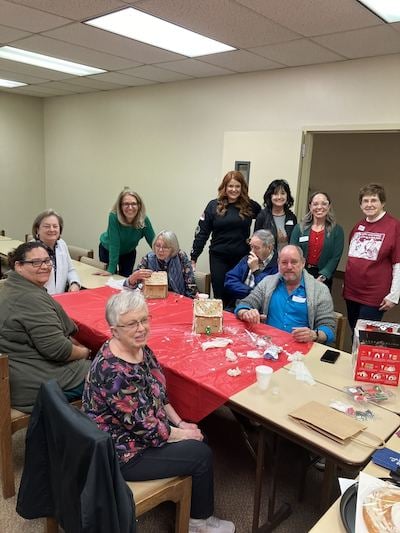Listening: An Under-Utilized Caregiving Skill



As Alzheimer's Disease and related dementias continue to rise at exponential rates, there is a pressing need for innovative solutions to address this growing epidemic. The concept of dementia capable systems has emerged as a vital initiative at the federal, state, and community levels to create a supportive environment for individuals living with dementia. Let's delve into the definitions of key terms such as dementia capable, dementia capable systems, dementia friendly communities, and dementia capable care, shedding light on the multifaceted approach required to combat this challenging issue.
Dementia Capable:
Dementia capable, as defined in the U.S. national dementia plan, encompasses activities and enjoyments that support the personhood of individuals living with dementia. It also emphasizes empowering care partners with knowledge, skills, and competency to enhance the quality of life for those affected. This broad scope recognizes the importance of addressing both the needs of individuals with dementia and those providing care.

Caring for individuals living with dementia can be challenging, particularly when their reactions become physically and/or verbally sexual in nature. Care Partners play a crucial role in creating a supportive environment that addresses the unique needs of the person living with dementia while maintaining dignity and safety for all involved. Here are some helpful tips and tools for care partners to keep in their tool box while helping people with sexually related stress reactions.
Identify Potential Triggers
Identify potential triggers for sexual reactions, such as unmet needs, providing care, or environmental factors. Keep a record of when these reactions occur to recognize patterns and address them.
Questions to ask:

The United States is currently facing a severe shortage of healthcare workers who are equipped and prepared to care for the aging population. This shortage is only expected to increase in the coming years, which will ultimately put a tremendous burden on the healthcare service delivery system. According to the U.S. Department of Health and Human Services Administration on Aging, approximately 40 million people in the U.S. were aged 65 or older in 2009, and this number is expected to reach at least 72 million by 2030. The majority of healthcare services are focused on older adults, making it crucial to have a sufficient elder care workforce.
One approach to addressing this shortage is to encourage college students to choose careers in elder care. However, there are several barriers in place that make this a challenging goal. Social phenomena such as ageism, lack of awareness of the need for workers, and a general lack of interest in and contact with older adults have been identified as factors that steer students away from working with seniors.
So, how can we motivate students to enter the elder care workforce? One promising solution is service learning.
This educational approach involves combining classroom instruction with community service projects that enrich students' learning experiences and promote civic engagement. Service learning has been shown to positively impact students' career choices and improve their attitudes towards working with older adults.


The alarming statistics surrounding Alzheimer's and dementia in communities of color cannot be ignored. Black Americans are twice as likely as older Whites to have Alzheimer's or another dementia, and Latinos are 1.5 times as likely, according to the Alzheimer's Association. While higher rates of cardiovascular disease may play a role, some studies suggest that these differences disappear after accounting for overall health and socioeconomic status. Regardless of the cause, the prevalence of dementia in Black and Brown communities is a public health crisis that demands immediate attention.
